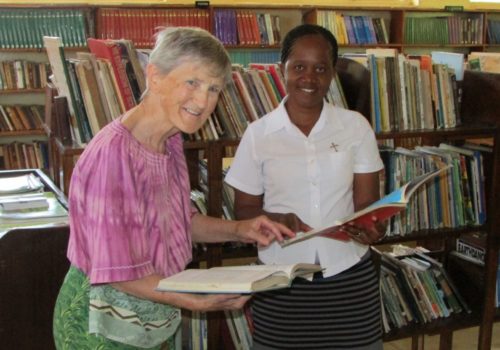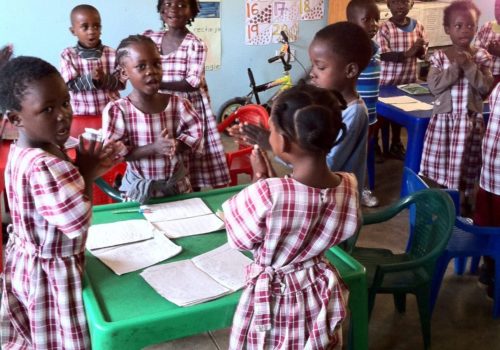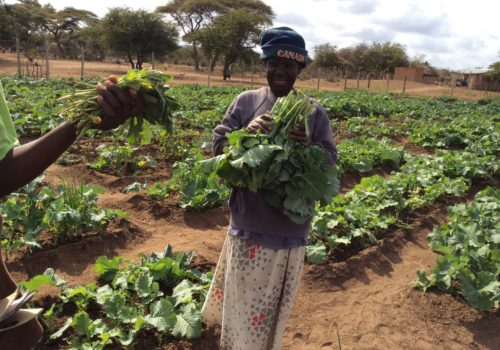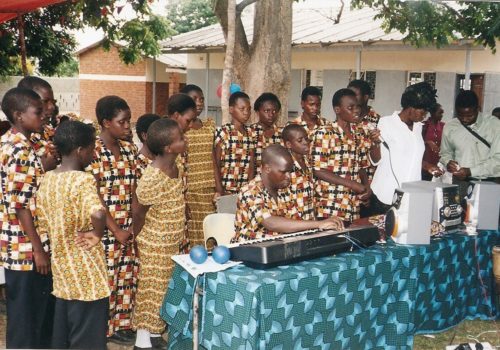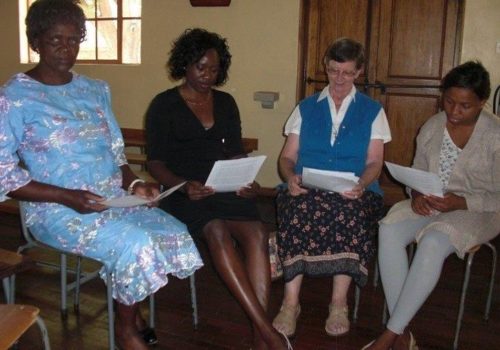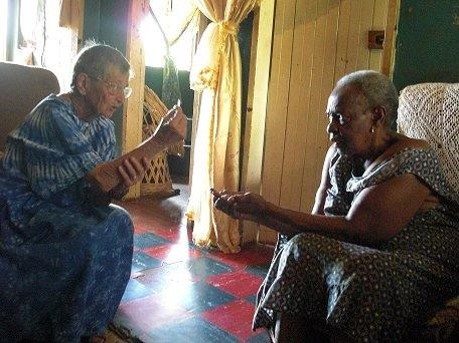RSHM first came to Zimbabwe in 1957 and to Zambia in 1966, establishing missions with sisters from the U.S. and Ireland. 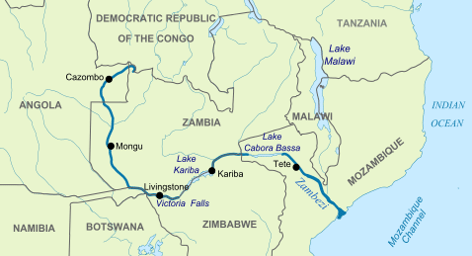 The Zambezi Region includes the sisters in both countries, both some of the original ex-patriates as well as African sisters who have since entered the congregation. The region formally came into being on January 6, 1996, and was named after the Zambezi river which runs between the two countries and is pictured above.
The Zambezi Region includes the sisters in both countries, both some of the original ex-patriates as well as African sisters who have since entered the congregation. The region formally came into being on January 6, 1996, and was named after the Zambezi river which runs between the two countries and is pictured above.
The majority of people in the region are very poor, but they are resilient. Many well educated and professional people look for work outside the regioln in order to earn a salary to assist others in their families. Education becomes more expensive as the government subsidies decrease. Although medications are now available, the HIV epidemic of the 1990’s took at great toll on the country, with many children born with HIV, or being left orphans, often living on the streets or being trafficked.
RSHM in the region serve in a variety of ministries. St. Joseph’s School, a boarding school in Chivuna, a rural area, is recognized as one of the top schools in Zambia. In Choma, also in Zambia, sisters minister in the parish, give retreats, and work with vulnerable children. Choma is also the home of St. Mulumba’s School, an extraordinary educational institutions for children with disabilites–intellectual challenges, deafness, and blindness. Finally in Choma, one finds a school called Kalundu Ka Maria (which Marymount in Tonga.) This school was opened to provide education for street children. The headmistress was an orphan herself and a past pupil of St. Joseph’s in Chivuna. In Lusaka, Zambia, RSHM provide counselling at a local hospice and the Umoyo day care center for orphans. In Zimbabwe, RSHM are active in the parish in Harare, and in nursing, education, and parish and diocesan ministry in Chinhoyi. In Dangamvura, a township in Mutare, RSHM have changed the face of the diocese, gaining funding for many projects that benefit the people–an HIV center, additional clinics, plans for a school, and agricultural initiatives.
Facebook Page click here
